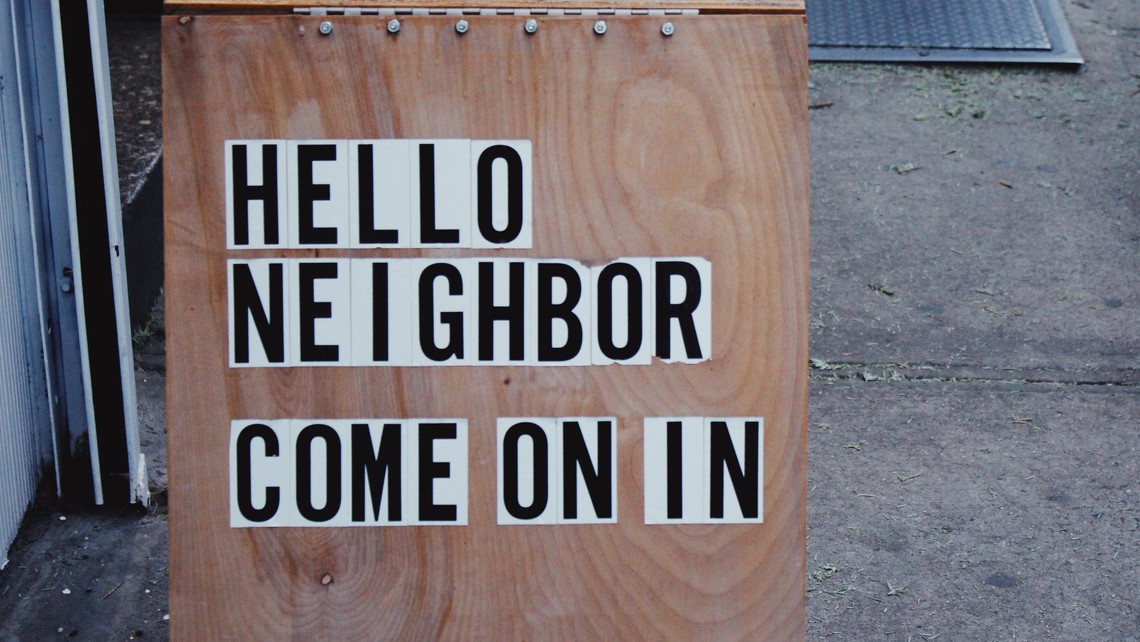
One of God’s most profound gifts is the ability to communicate. There is a sense of truth and beauty when two people can share and come to a mutual understanding or respectful and loving disagreement on a specific topic where both examples end in a genuine expression of charity. My wife and I cherish our opportunities to discuss anything whenever time permits. No topic is off-limits, and we can be a bit lively because of our Italian and Mexican heritage.
One such topic focused on loving Jesus and loving your neighbor as Jesus loves us. As we discussed this briefly, the following argument was made: “Loving Jesus is easier than loving your neighbor.” We both thought about this for a moment; it is probably easier to love Jesus because he is supposed to love you in return; He is God, and his love is infinite and omnipotent. His love is not predicated on how much or little we love him. We can deny him and commit sinful acts that would either distance or deny Jesus’s love for us by our own doing, but he will still love us. Our neighbor, on the other hand, is an entirely different story.
As human beings, we are naturally inclined to control the environment around us and dictate who should even dare wander into our territory. Our human appetite can blind our perception of seeing reality for what it is to determine our outcomes with ourselves and with those around us. This simple fact, I argue, is a primary reason many of our evangelization efforts tend to spiritually limp and whither away due to our perception of reality not resonating with the truth of the person we are trying to share the Gospel. In some respects, the disciple in this situation loves his expression of the Gospel more than the person he is with.
A Personal Sense of Love
In his wonderful encyclical, Evangelium Vitae, on the value and inviolability of human life, St. John Paul II reminds us that when the sense of God is lost, the sense of your fellow human being as a child of God is also lost (emphasis mine).[1] Moreover, once all reference to God has been removed, it is not surprising that the meaning of everything else becomes profoundly distorted. Nature itself, from being "mater" (mother), is now reduced to being "matter" and is subjected to every kind of manipulation.[2]
The significance of these statements unveils an essential characteristic of our ability and desire to love; we are created out of a desire to love; God is love; he created us through a symphony of awe and wonder. Because our very existence is intimately associated with Divine love, our disposition, if we freely choose, is to love as God loves us.
Why should I love my neighbor?
If this question is difficult for you and me to answer, we must commit to a sincere examination of conscience to discern and determine why. The Catechism of the Catholic Church reminds us:
When someone asks him, “Which commandment in the Law is the greatest?” Jesus replies: “You shall love the Lord your God with all your heart, and with all your soul, and with all your mind. This is the greatest and first commandment. And a second is like it: You shall love your neighbor as yourself. On these two commandments hang all the Law and the prophets.”9 The Decalogue must be interpreted in light of this twofold yet single commandment of love, the fullness of the Law:[3]
The love of neighbor as yourself requires a willingness to sacrifice and affirms your neighbor’s identity as a fellow child of God, not a foreign human contaminant. Jesus reminds us to love one another as I have loved you.[4] This commandment fulfills the Law of God, the Law of love for God and neighbor as yourself. These two specific acts of faith encompass our willingness to proclaim God’s love in Word and Deed but also pave the way for our eternal rest in heaven. The Catechism again reminds us that the two greatest commandments are to love God and your neighbor as yourself.[5] St. Paul reminds us that we have fulfilled the law if we love our neighbor.[6]
An Examination of Conscience to Love
Suppose you find yourself struggling to love your neighbor. In that case, I recommend meditating on the following Psalm to help you remove all sinful impediments preventing you and me from fulfilling the Law of God and loving our neighbor who is still a loving child of God.
My soul clings to the dust; revive me according to your word! When I told of my ways, you answered me; teach me your statutes! Make me understand the way of your precepts, and I will meditate on your wondrous works. My soul melts away for sorrow; strengthen me according to your word! Put false ways far from me, and graciously teach me your law! I have chosen the way of faithfulness; I set your ordinances before me. I cling to your testimonies, O Lord; let me not be put to shame! I will run in the way of your commandments when you enlarge my understanding! Teach me, O Lord, the way of your statutes, and I will keep it to the end. Give me understanding that I may keep your law and observe it with my whole heart. Lead me in the path of your commandments, for I delight in it. Incline my heart to your testimonies, and not to gain! Turn my eyes from looking at vanities, and give me life in your ways. Confirm to your servant your promise, which is for those who fear you. Turn away the reproach which I dread; for your ordinances are good. Behold, I long for your precepts; in your righteousness, give me life!
Psalm 119:25-40






